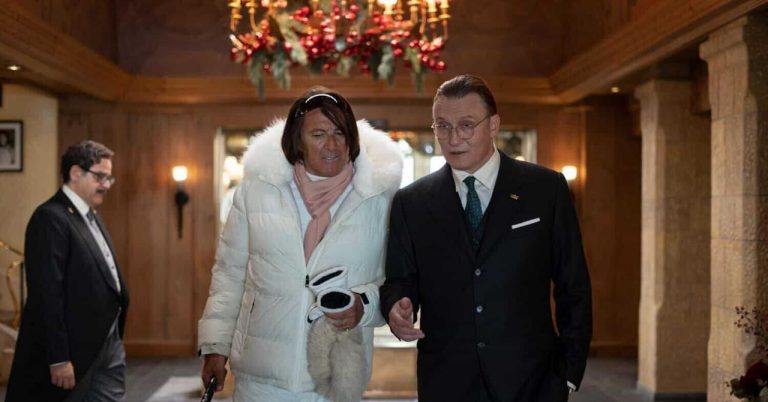La Pampa, the treadmill of adolescence on two wheels (review)
Antoine Chevrollier, screenwriter of Oussekine and director of episodes of The Bureau des Légendes and Baron Noir, arrives at full speed under the spotlights of independent cinema and on the stage of the Champs-Elysées Film Festival.
It’s been two years since we thought that the Rodeo of Lola Quivoronpresented at Un Certain Regard and winner of the Jury Prize and the Critics’ Prize for Best Feature Film at the Champs-Elysées Film Festival, had dried up the source “motocross” independent cinema. However, with The Pampasalso presented at Cannes (Critics’ Week) and at the CEFF, Antoine Chevrollier takes the (successful) gamble of tackling a sub-genre that perhaps thought it could rest on its laurels.
The Pampas, it is the dissection of this fury for life which animates Willy and Jojo, friends in life, in death, on motorcycles. Through a rather classic set of circumstances, Willy learns of his friend’s homosexuality. A secret that will soon become an open secret in a village where toxic masculinity is law, enforced by the hand of normative popular justice. At the same time, Willy, who erects all parts of his life into a mausoleum dedicated to the memory of his father, sees his world collapse when his mother tells him she wants to sell his childhood home.
For his first feature film, the director paints a portrait of a society whose very ramifications are poisoned by violence, just as in Oussekinethe mini-series that made him famous. Along the roads of a Longué – his own original countryside – in wasteland, from abandoned hospital to improvised squat, and above all, launched at high speed, his characters mark time, prisoners of an irrepressible glass ceiling.
Explain, but not forgive: this is Antoine Chevrollier’s project. Also, no man is spared from violence: neither Teddy (Artus), the motocross coach who represses his homosexuality, nor Jojo’s father (Damien Bonnard), unable to accept his son for who he is, nor Willy himself (Sayyid El Alami) who, as a man in the making, also tends to express his adolescent frustrations with his fist. Ultimately, salvation can only come from women, mothers, sisters or friends, who escape this “cowardice specific to men” as Chevrollier states.
Beyond a solar film despite its subject, and beautiful, both in its form and in its content, Antoine Chevrollier above all signs an exercise in actor direction which fundamentally hits the mark. Whether it is the young people, Sayyid El Alami (who already played the main role in Oussekine), Amaury Foucher And Léonie Dahan-Lamort (who recently played the lead role in The bite) or adults, Artus, Damien Bonnard, Florence Janasall the actors manage to express this I don’t know what complexity, nuance, necessary to treat adolescent despair at its most tragic.
In short, for his first attempt Antoine Chevrollier starts strong and hits the mark in the registers of cursed friendship to the Close (Lukas Dhont2022), from coming out forced, and from a castrating and liberticidal diagonal of the void, without ever, ever falling into a tearful pathos.
By Antoine Chevrollier. With Sayyid El Alami, Amaury Foucher, Artus, Damien Bonnard… Duration 1h43. Released February 5, 2025.
Habibi, songs for my friends: life is a cabaret, old chum! (review)







